
Ten students participated in this year’s study abroad program, “Sustainable Development in Latin America.” The course ran from July 8th-August 5th, 2017 and was a collaboration between the University of Oregon, USA and Planet Drum Foundation’s Ecuador Program. The students explored issues related to sustainable development including the tensions, challenges, and possibilities for reconciling development and conservation in Ecuador. Accompanied by Professor Jesse Abrams, the group of students spent a full month in Ecuador and received college credit for their work. The first week was in Quito at the Simon Bolivar School for Spanish lessons and home-stays. On July 16th, the group arrived at the Planet Drum residence in Bahía de Caráquez for three weeks of intensive classes, cultural exchange, service learning, and Dry Tropical Forest revegetation workshops.

During the first week, the group became familiar with the city of Bahía de Caráquez, visited the Planet Drum greenhouse, hiked through the Cerro Seco Biological Reserve and visited the Rio Muchacho Organic Farm to learn about permaculture practices in a Dry Tropical Climate. Most days involved a morning excursion to a field site and afternoons were dedicated to course work with Professor Abrams.
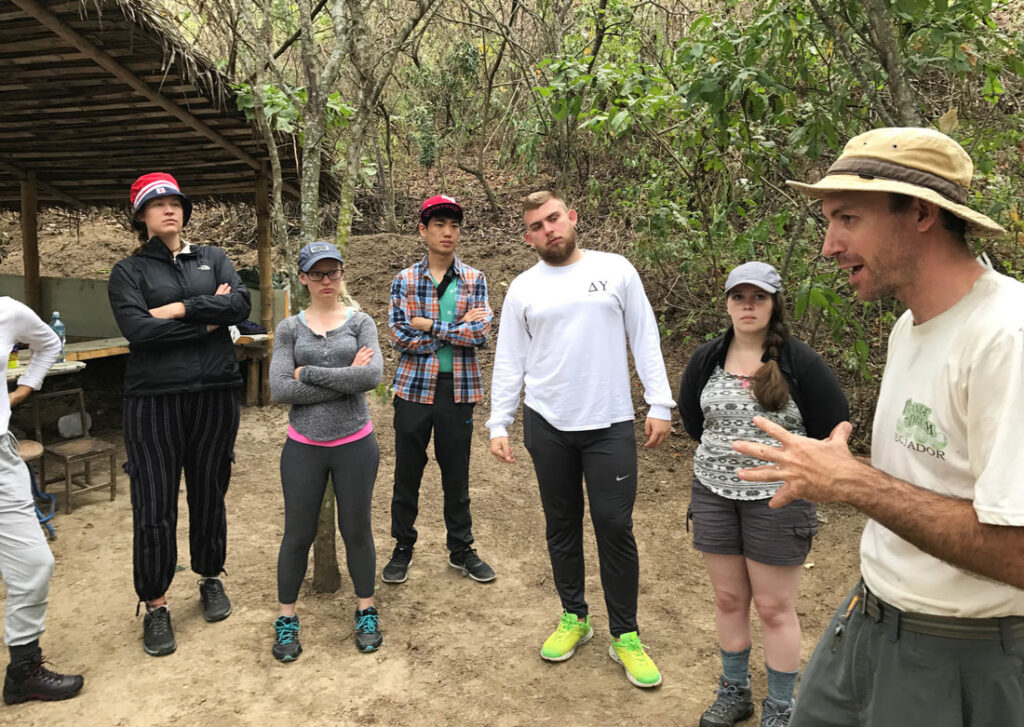


At the greenhouse, students learned about Planet Drum’s revegetation work and then they had a chance to get their hands dirty during an Naranja (Orange) and Marañon (Cashew) seedling transplanting workshop.


A hike through the the Cerro Seco Biological Reserve provided the group with the opportunity to see and experience Dry Tropical Forest habitat first-hand. During the hike, we found Chirimoya seeds on the ground and spent a few minutes collecting them. After the hike, Marcelo Luque, Director of Cerro Seco Biological Reserve, led a wide-ranging discussion about the Dry Tropical Forest, regional conservation efforts, eco-tourism, and the concept of “Buen Vivir” (Good Living), which has been a part of the Ecuadorian constitution since 2008.
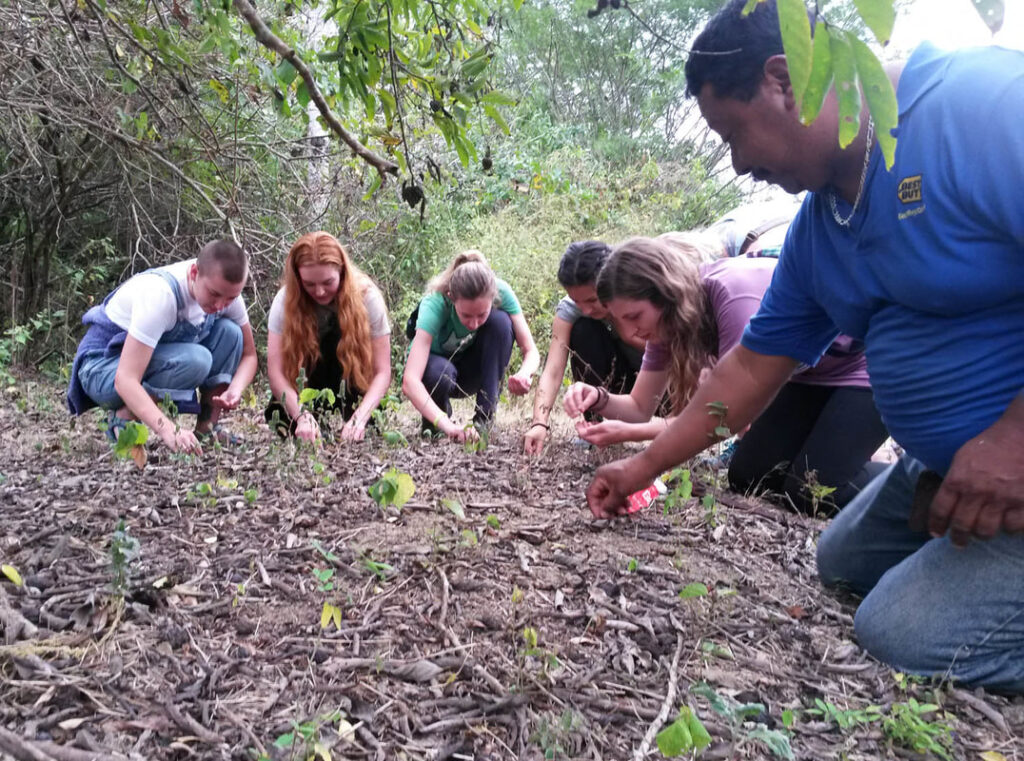


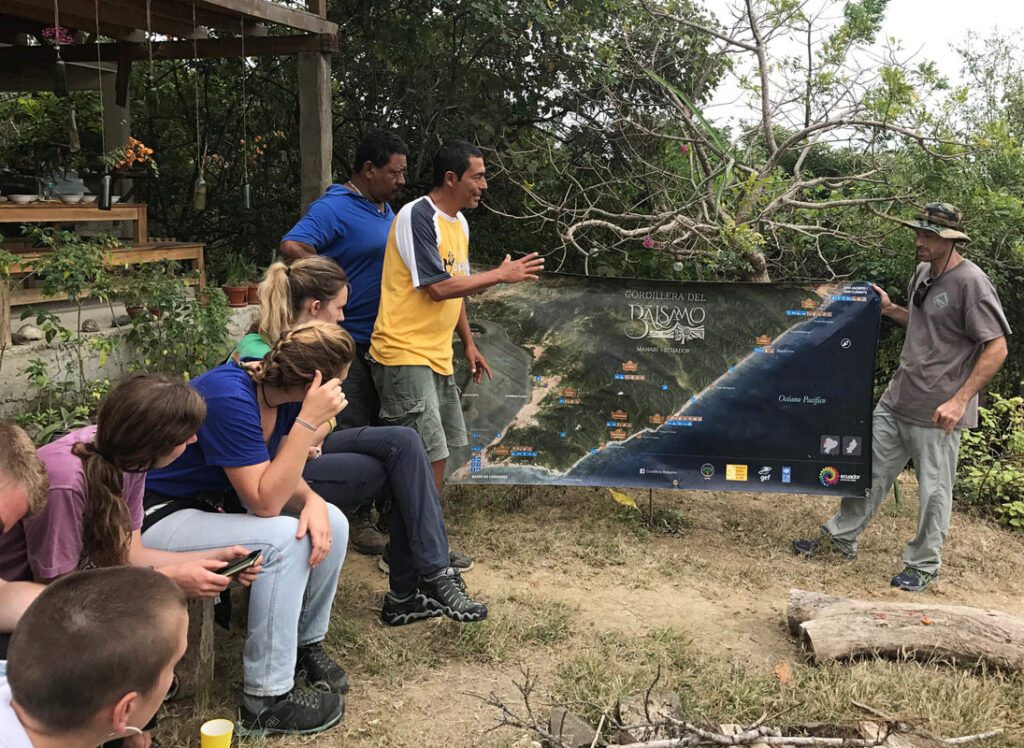
Two days and nights were spent at the Rio Muchacho Organic Farm. On day one, students learned about “Environmental Efficiency” from Dario Proaño, visited a local farm, assisted Nicola Mears with seedbed preparation and transplanting beans in the organic garden, and at night made chocolate from Cacoa beans. Day two, Nicola presented the history of Agro-Ecology and Permaculture and gave an in-depth tour of the farm and the various permaculture practices that they employ. Students also visited one of the largest strangler-fig trees in the region.



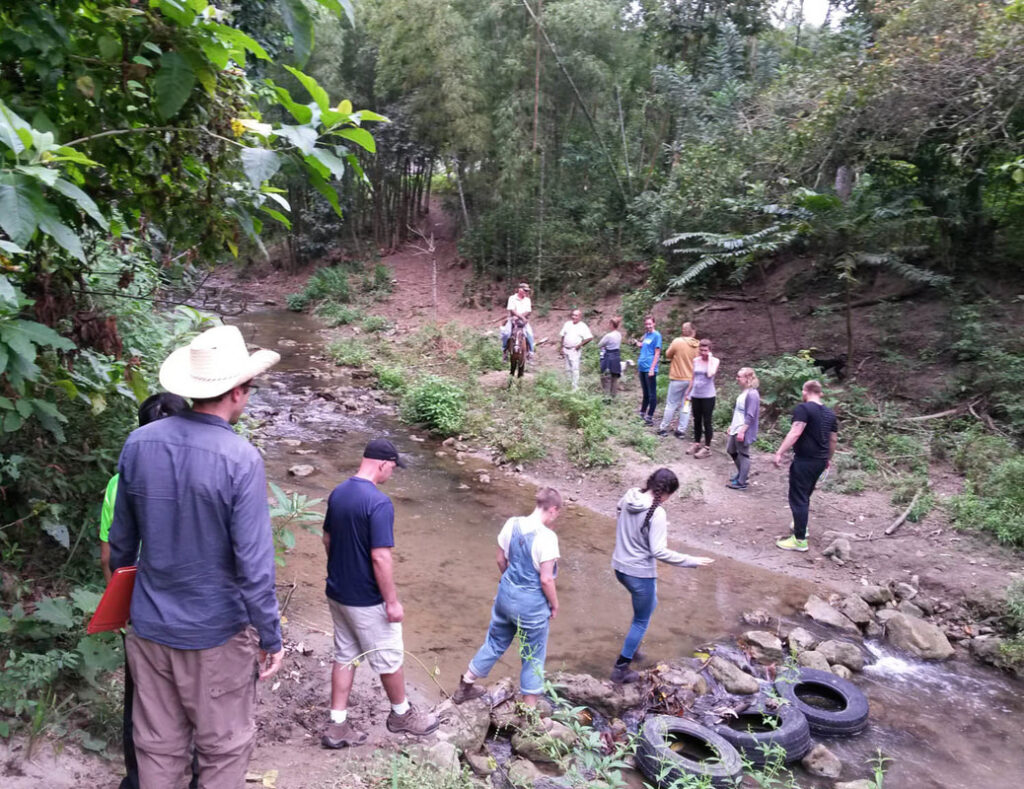
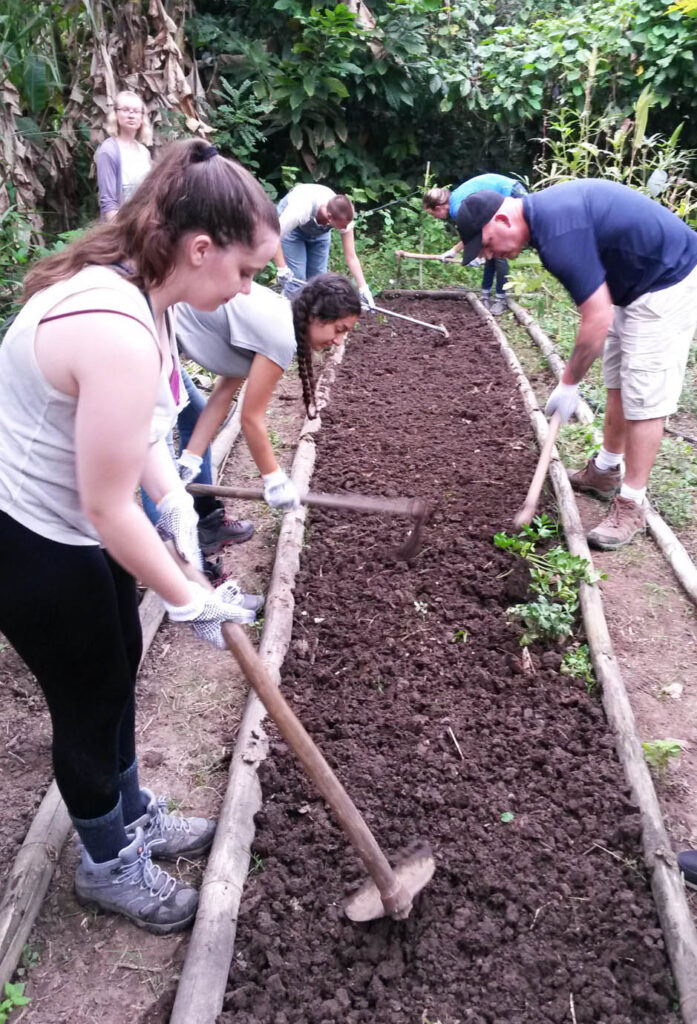



Reader Interactions